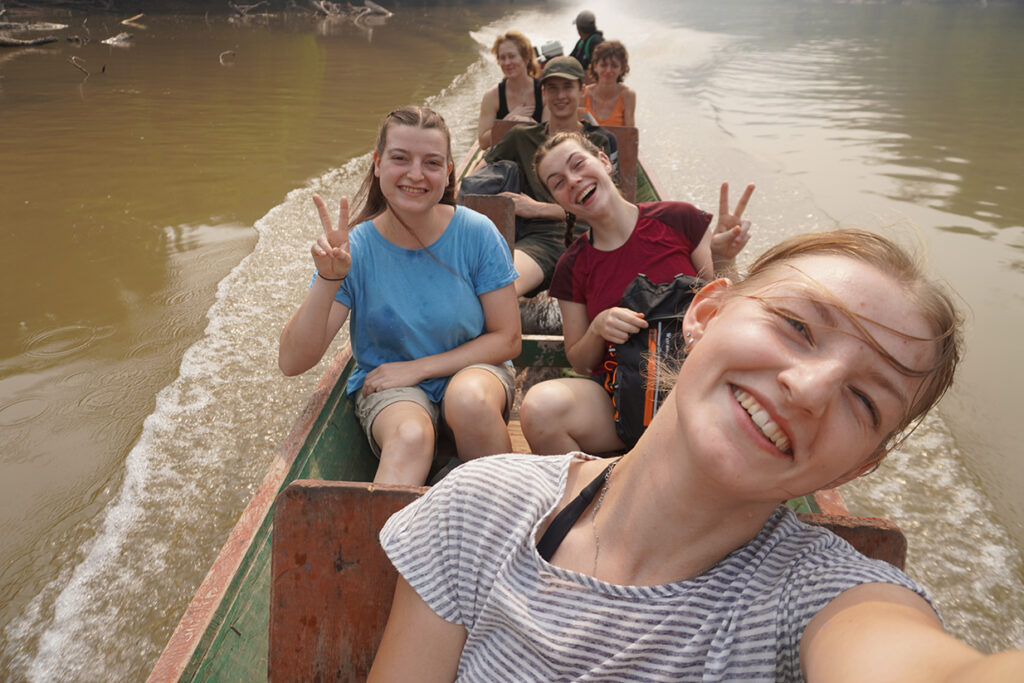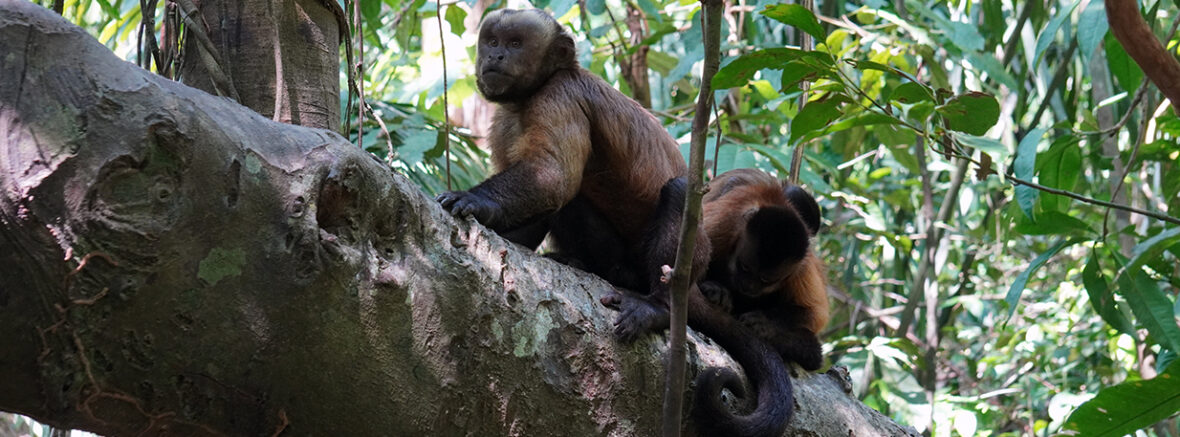Busy, busy, busy—that’s what EV is all about! Despite a tough month, our incredible team makes anything possible. We finally enjoyed some proper jungle rain—almost enough to get us singing in the rain!
 Animals
Animals

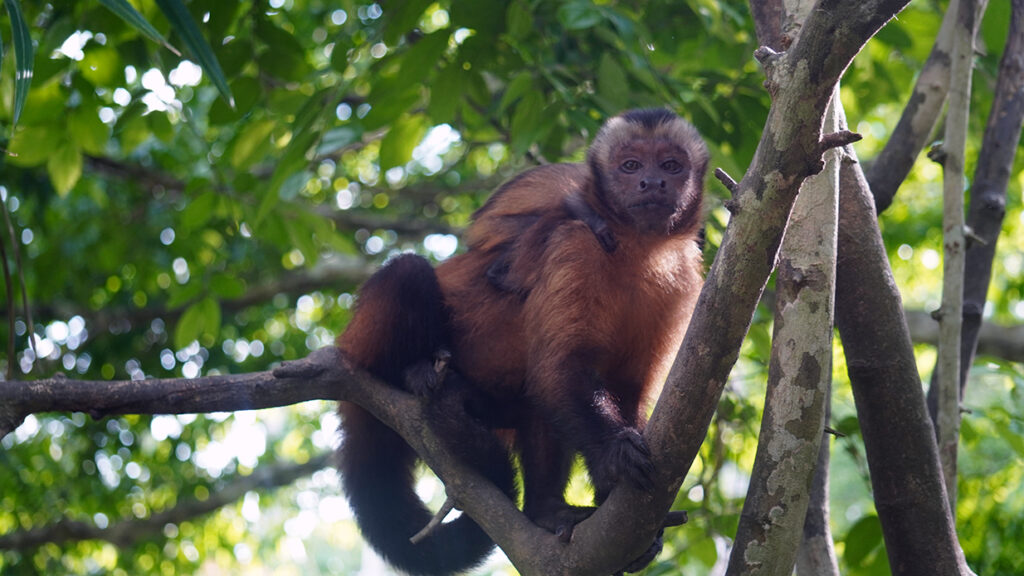
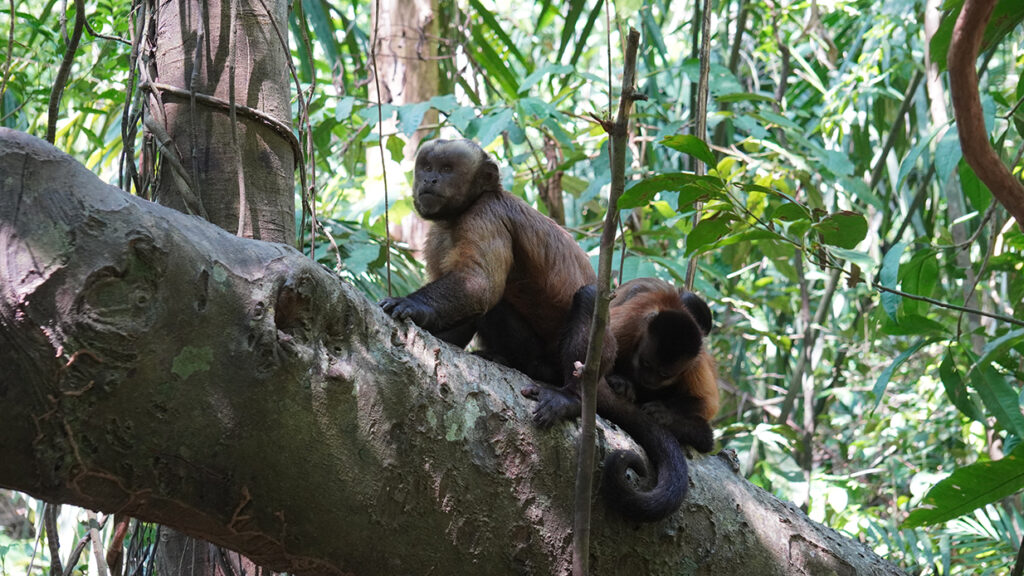
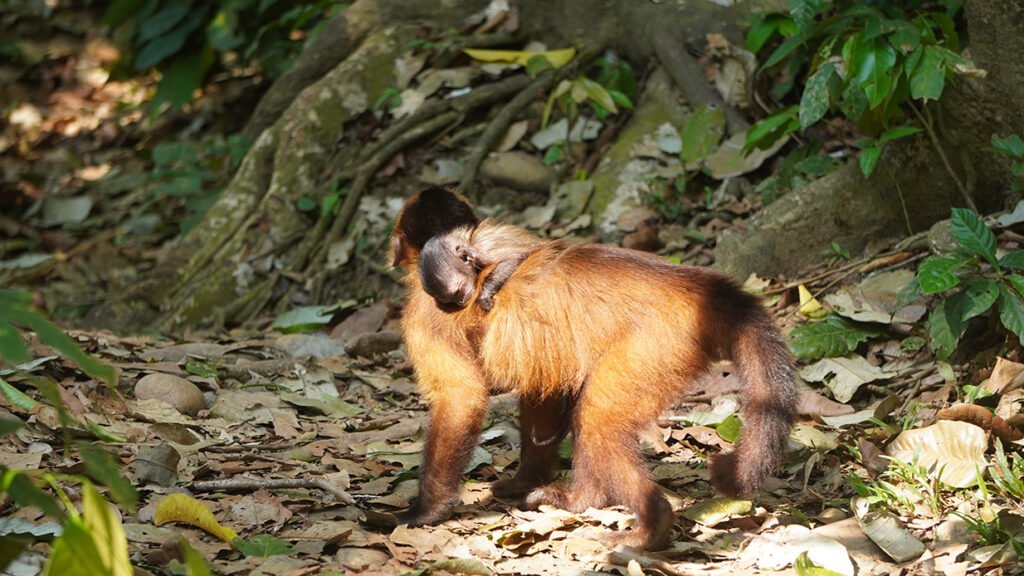
This month unfolded like a dramatic episode of Game of Thrones when Namaru, the alpha among the large-headed capuchins, fought with his brother Nawi. Both left wounded, with Nawi being the worse off. He is currently on the outskirts of the group, nursing his injuries but still present. Born to a wild male and a rescued female, both brothers are skittish around humans, making treatment challenging. Our team is monitoring them closely and ensuring they have access to high-energy foods like extra fruit and eggs.
Meanwhile, the females Mayantu and Rayka both gave birth—Mayantu’s second, and Rayka’s first—keeping their tiny babies close.
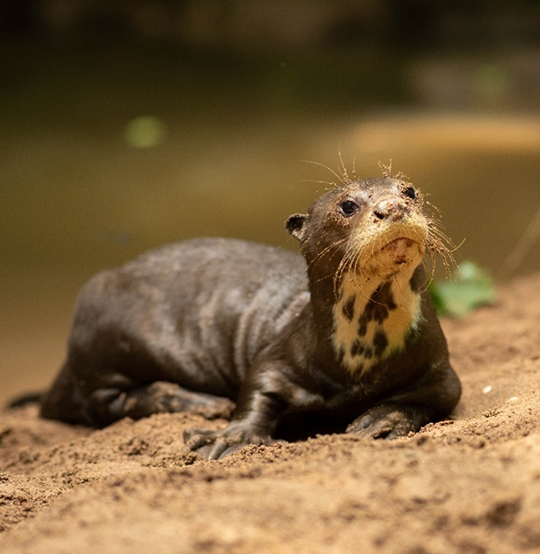
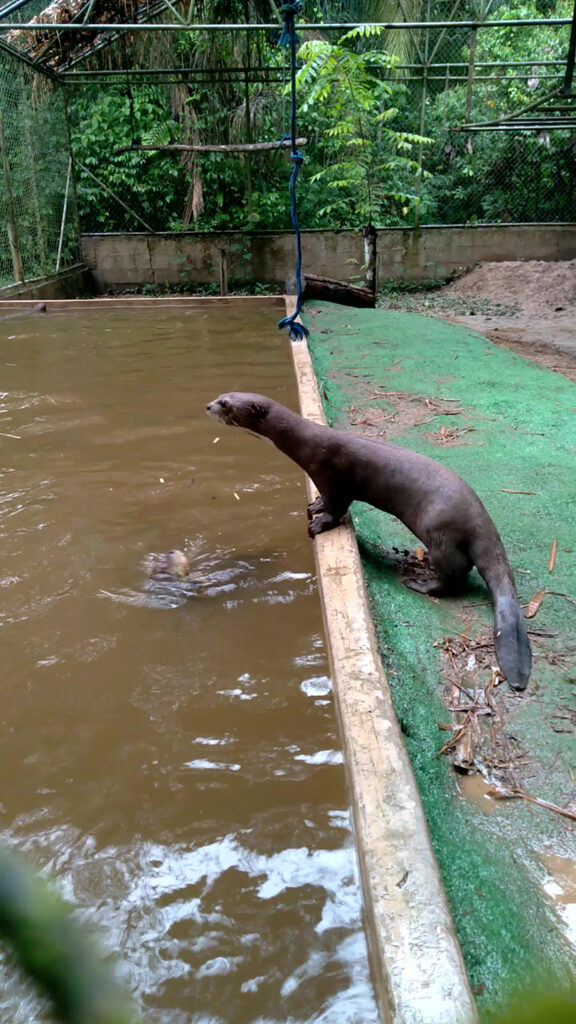

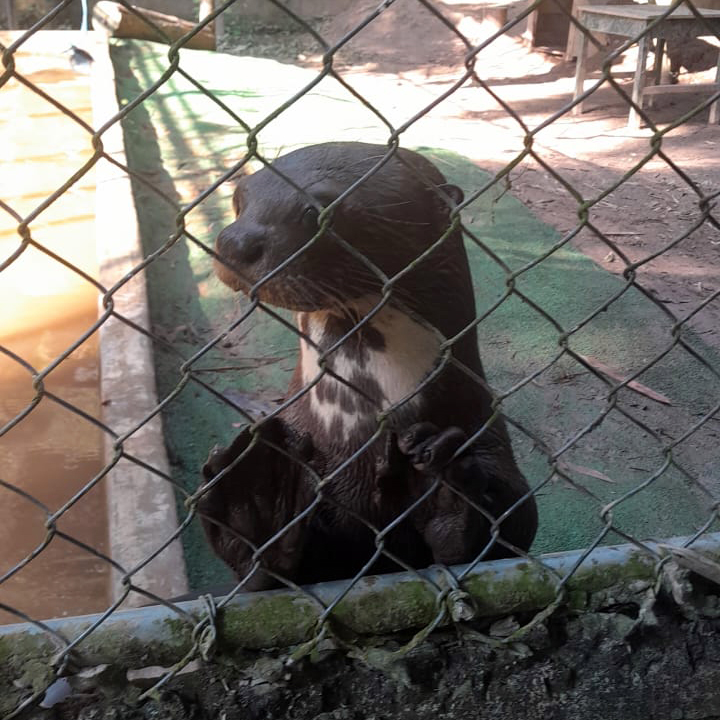
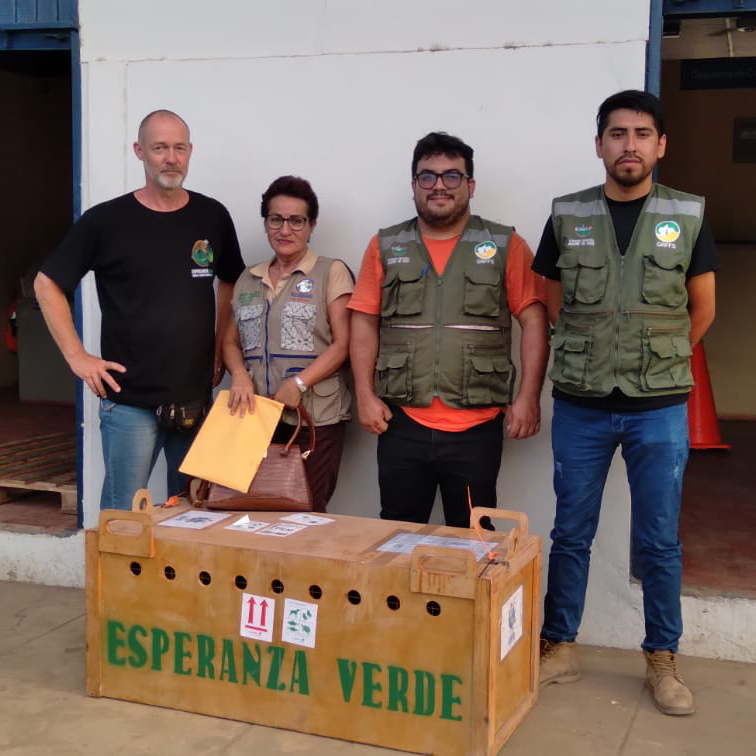
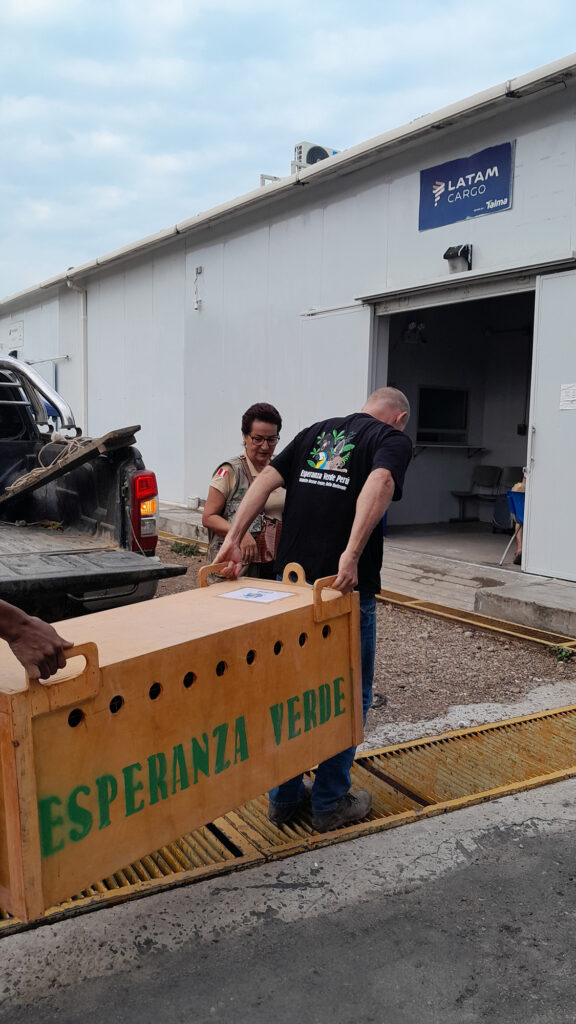
After nine months of delightful walks and fishing sessions, we said goodbye to our dear giant river otter, Caucho. Together with Hortencia (representative of the Ministry of Fauna Pucallpa), Douwe brought him to the Taricaya Eco Reserve, a wildlife rescue centre in southeastern Peru, where he will have a chance for release back into the wild. He was introduced to another male, Kusi. After some initial grunting and sniffing, all seems well. Kusi was very interested, while Caucho needed time to adjust to his new friend and the various new smells. The goal is to release them together when the time is right. We were all emotional to see him go; working with him has been an amazing experience. The family already misses hearing his daily screeching! A heartfelt thanks goes out to UPA, Unidas para Animales, and LATAM for organizing and financing this significant transition.
 Susy Utzinger Orphan Animal Hospital
Susy Utzinger Orphan Animal Hospital
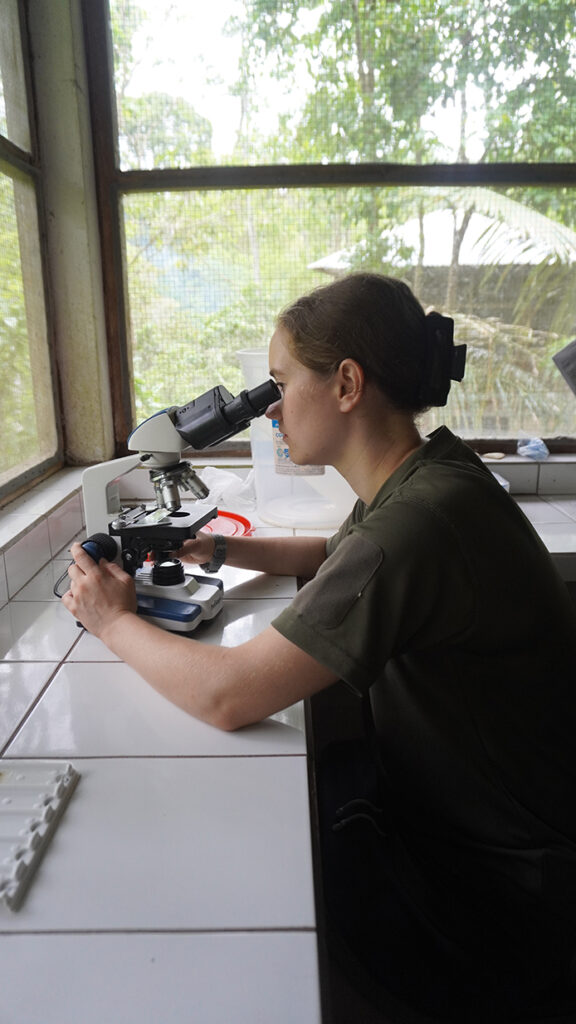
Despite a quieter month at SUSTOAH, our newly appointed vet, Lucie, had a busy time addressing various health issues.
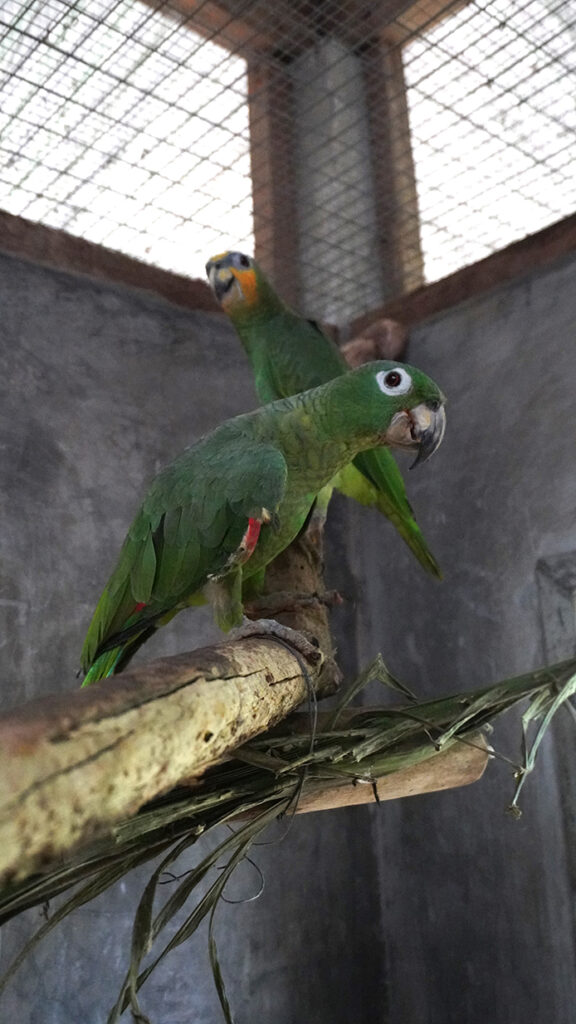
Lida, a mealy amazon, from the big aviary ¨Pichu¨ was treated for an old wing fracture before joining the group of amazons in the quarantine.
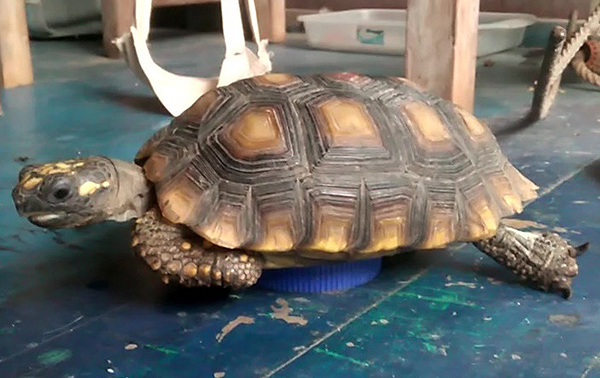
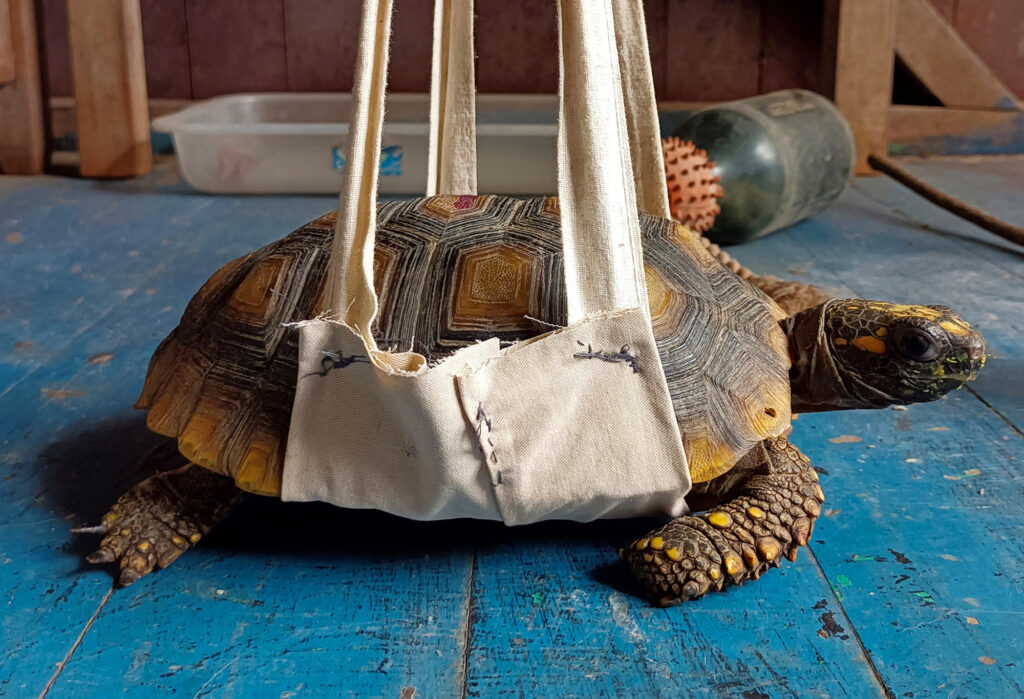
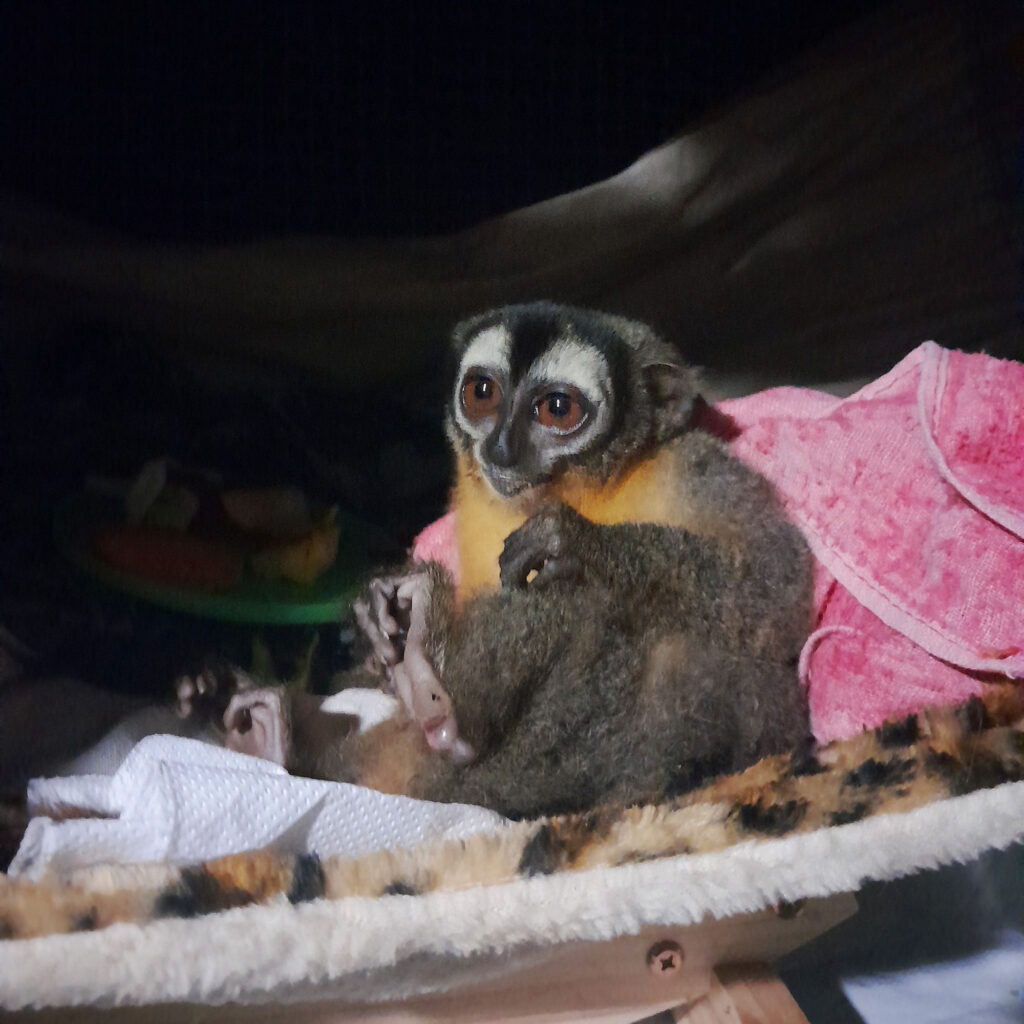
Otis (adult male night monkey) and Paquishca (yellow-footed tortoise) made a trip to Pucallpa with Douwe for X-rays. While the results were mixed, we are fortunate to have dedicated veterinarians who discussed the options. Unfortunately, we determined that Paquishca’s hind legs could not be healed, and her future would involve a life in an enclosure, likely filled with pain. We made the difficult choice to let her go peacefully. In contrast, Otis’s case showed more promise, and we found a treatment to hopefully repair his bone structure. For now, he lives at the Family House under their caring watch and will return for another X-ray to assess his progress.
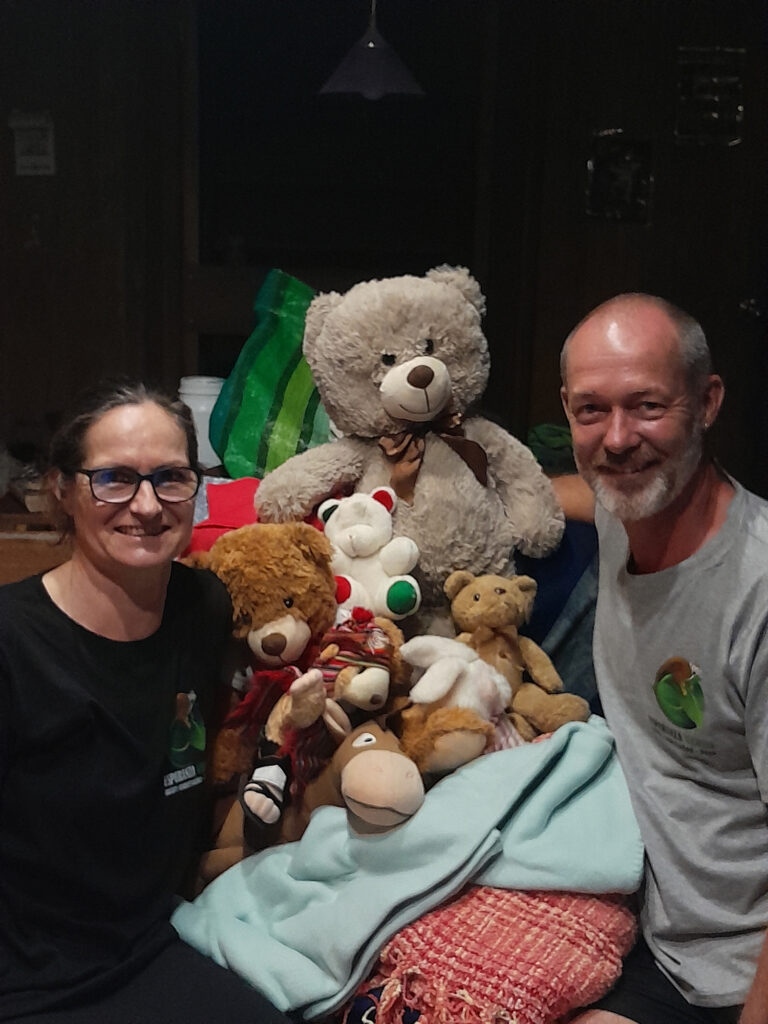
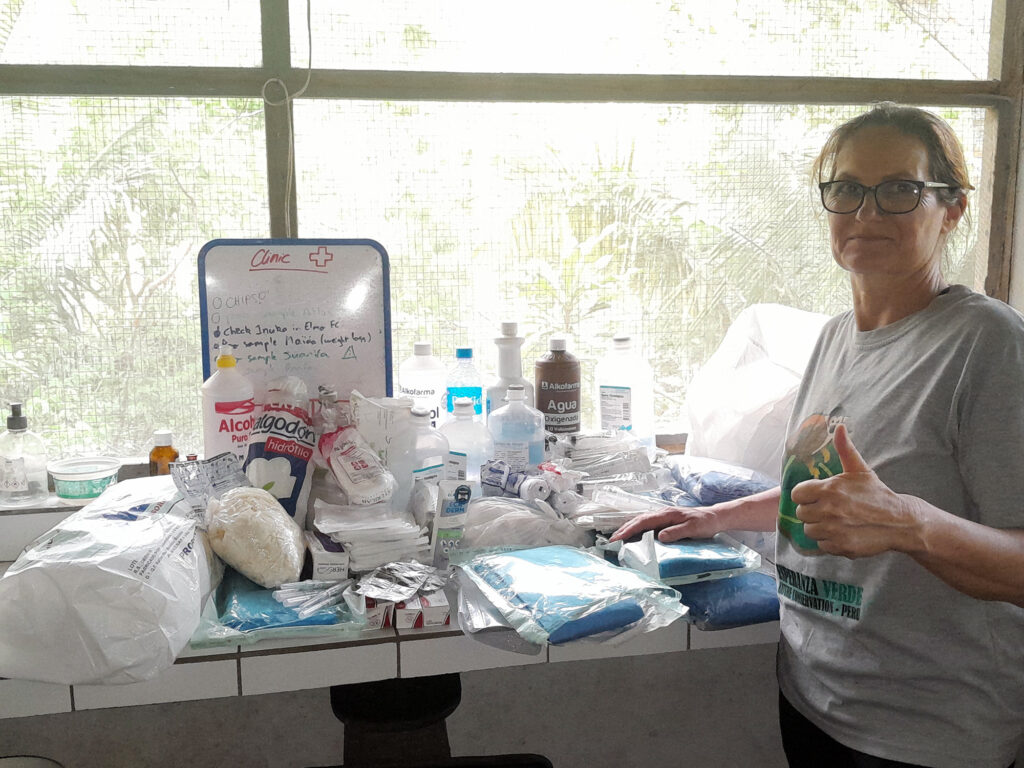
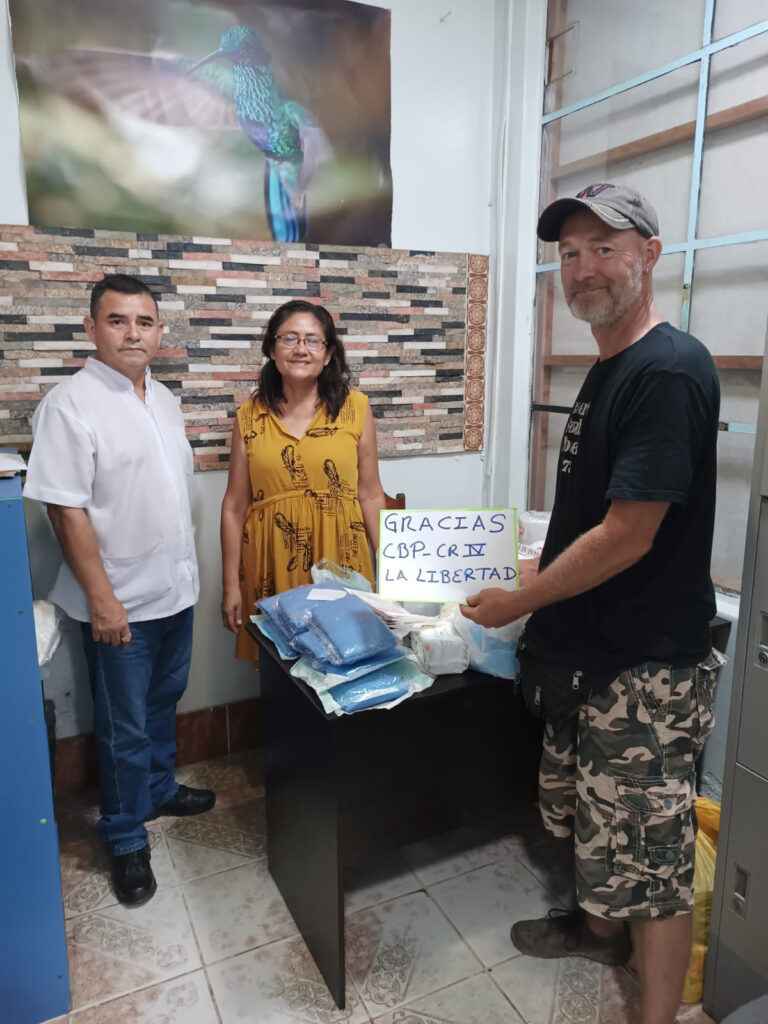
We are very grateful to Manuela from the laboratory “Natura” in Pucallpa for the generous donation of medical supplies from the College of Biologists of La Libertad and the volunteers from Biodiversity in Ucayali and Ukaw. Additionally, thanks to a collection campaign organized by Unidos por los Animales (UPA), we received blankets and soft toys for baby animals.
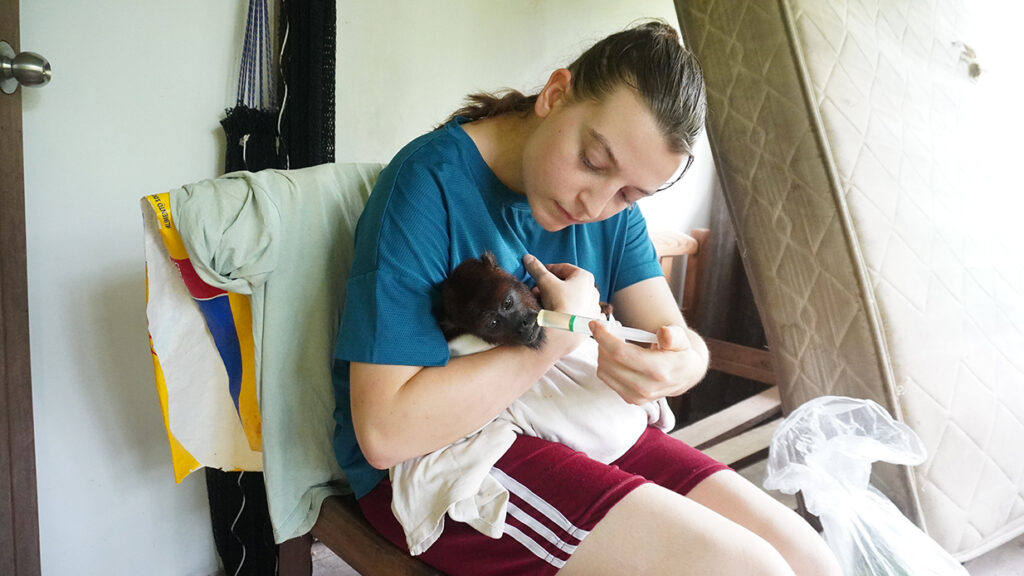
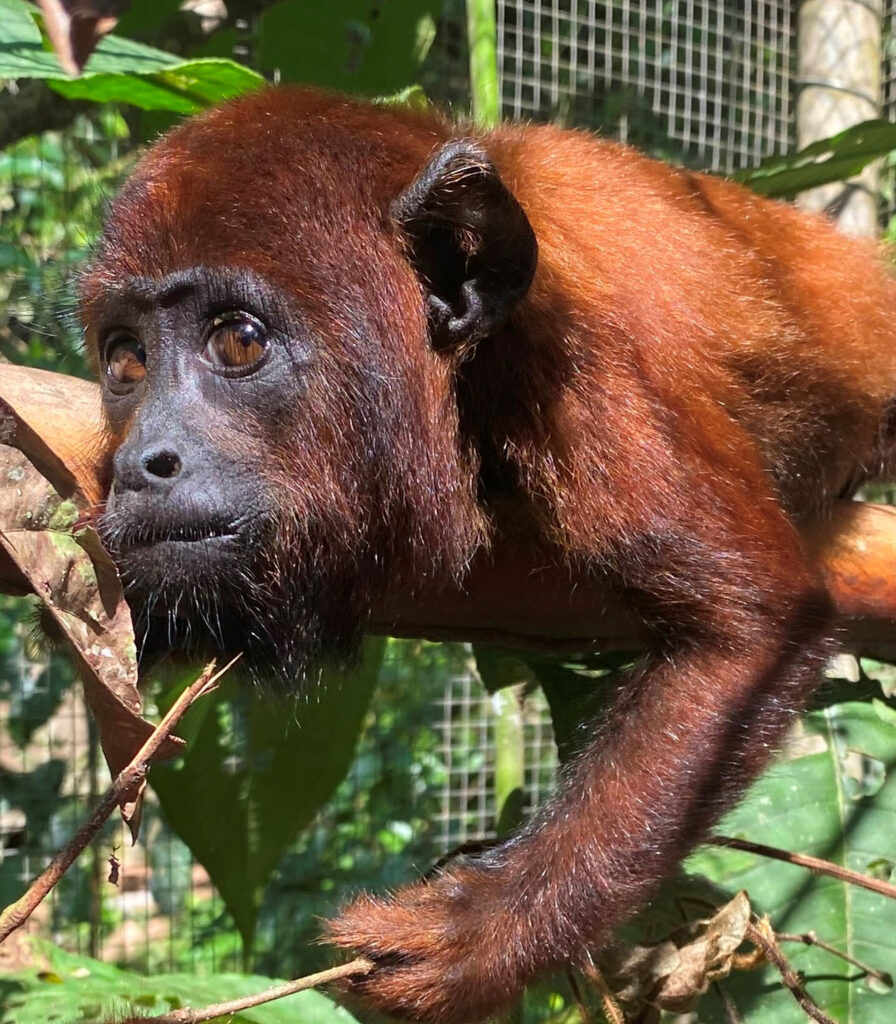
Sadly, Cotok, a juvenile male howler monkey, lost a significant amount of weight and stopped eating. We provided special attention, steaming vegetables and eating with him. Unfortunately, he did not respond to treatment and passed away from acute intestinal invagination.
 Quarantine
Quarantine
We welcomed several new animals this month:
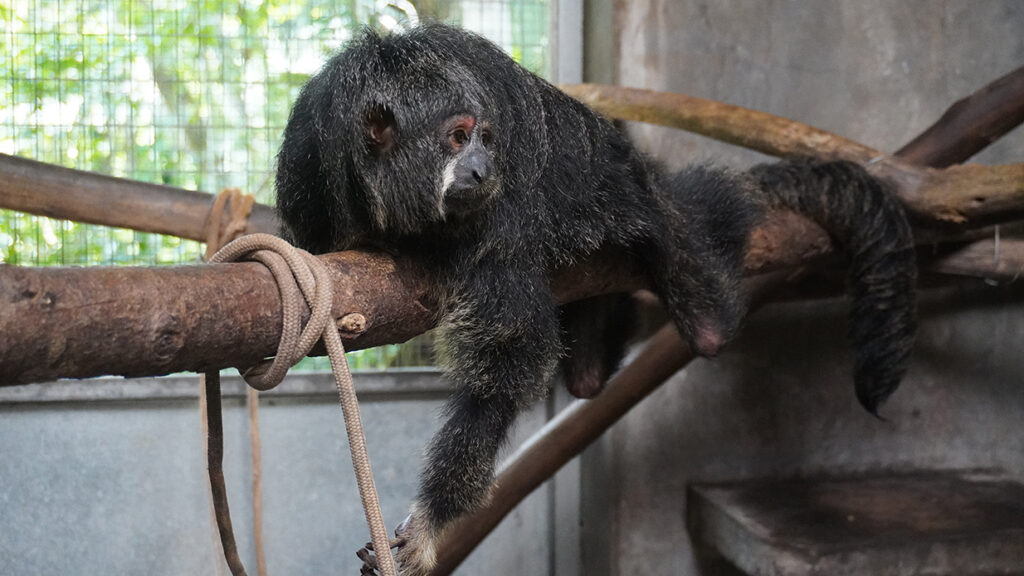
- Sumika, an adult female monk saki, very curious and already eager to explore the outside world.
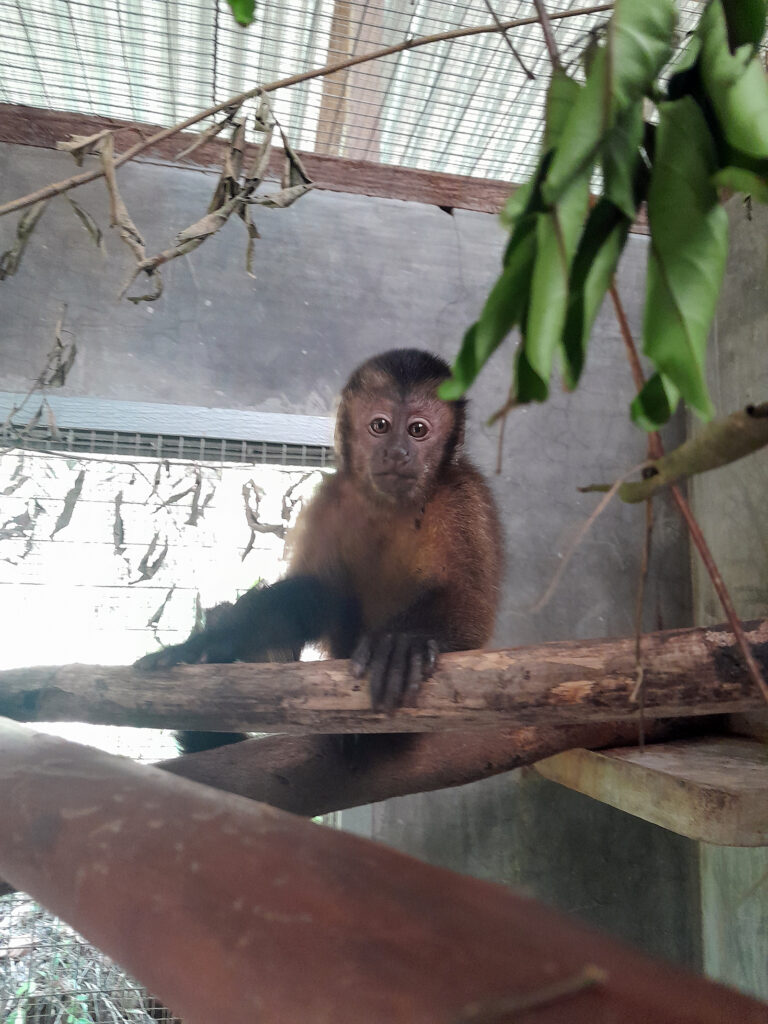
- Meeko, a juvenile male large headed capuchin, wary of people, a great sign for future release.
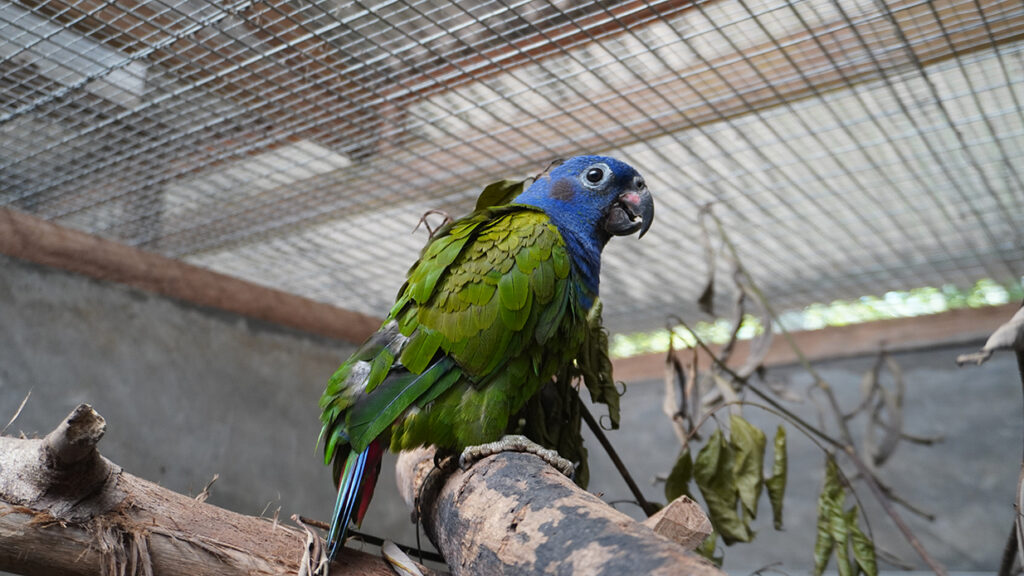
- Odessa, a blue headed parrot confiscated from a bar, still adjusting to this new environment.

- Lamber, a baby southern naked-tailed armadillo, currently receiving intensive care and loving his first taste of termites!
As many people still desire to keep wildlife as pets or take selfies with them, the illegal market continues to increase. This is particularly evident with our parrot population. Many arrived with their feathers cut, making future release difficult or sometimes impossible. It takes considerable time to recover their feathers and flying ability, resulting in a long-term stay at EV.

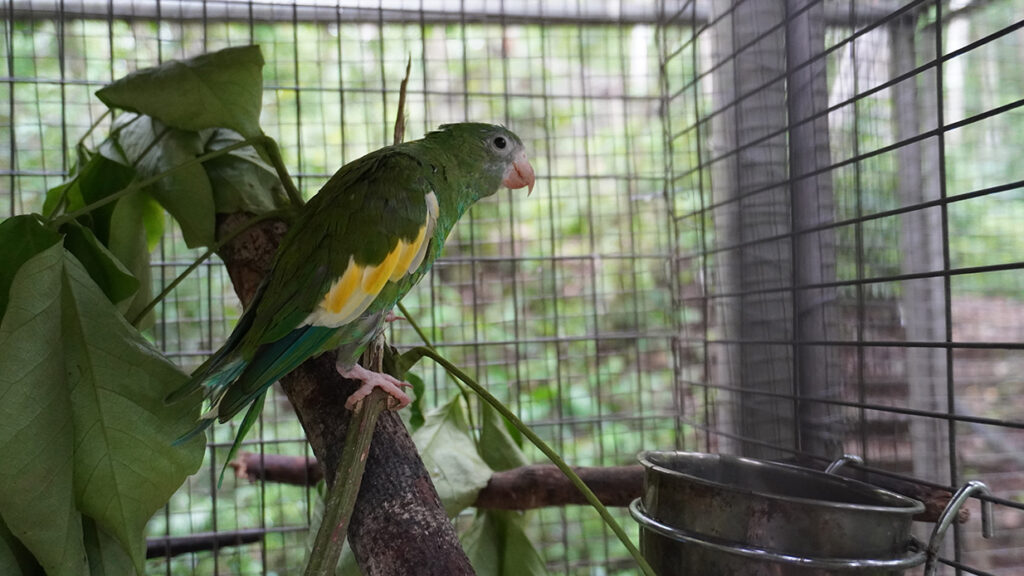
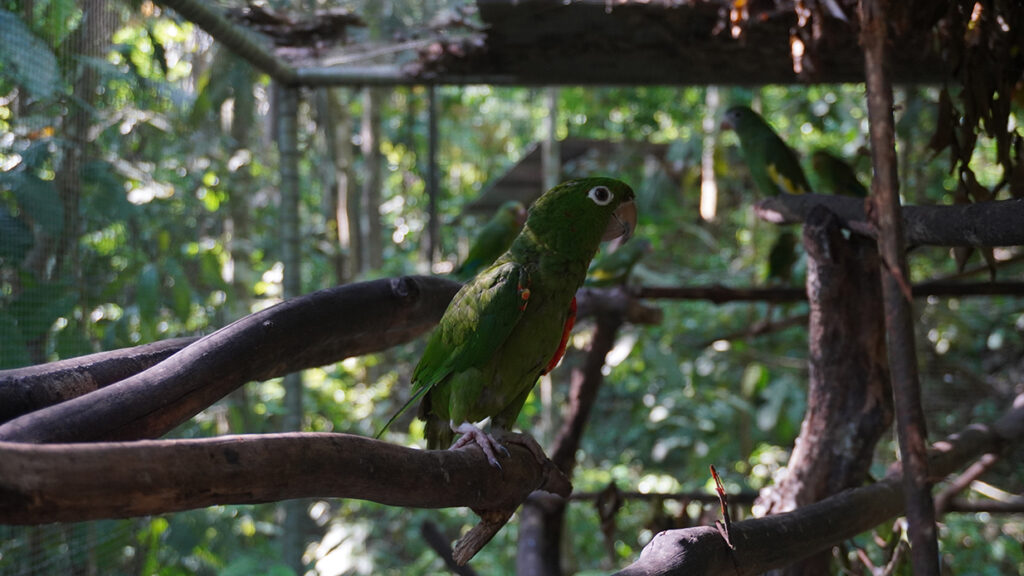
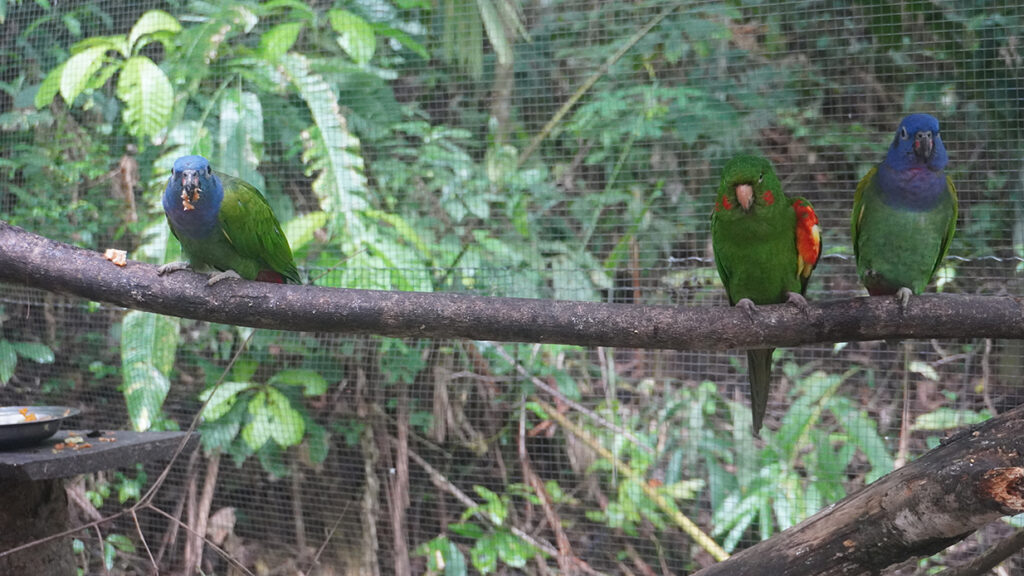
We are constantly challenged to find sufficient space for them, as not all birds coexist well. A group of five blue-headed parrots became a prime example of this, asserting dominance in the Igor enclosure. As a solution, we moved them to a new environment with others of a similar size—specifically, Lori, the white-eyed parakeet, in the Aguatena. This change allowed Delta, the orange-winged amazon, and Pichu, the white-eyed parakeet—both ready to leave the clinic—to peacefully return to Igor. It also provided an opportunity to introduce the very tame white-winged parakeet Mo, recently out of quarantine, to the group.
 Construction
Construction
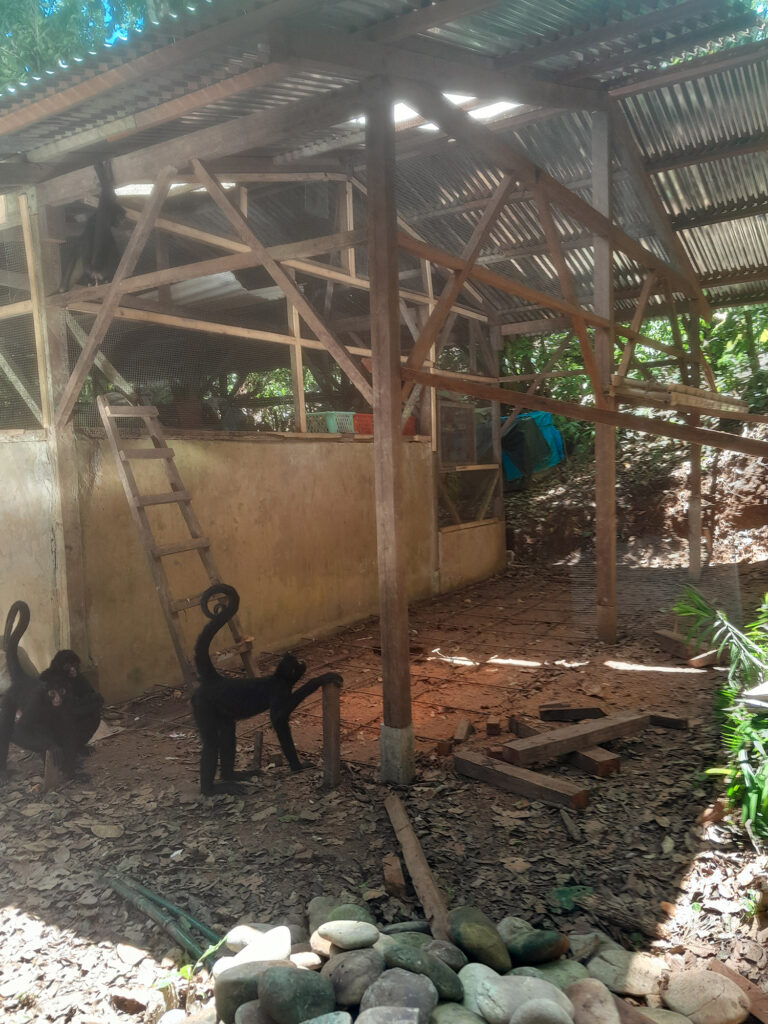
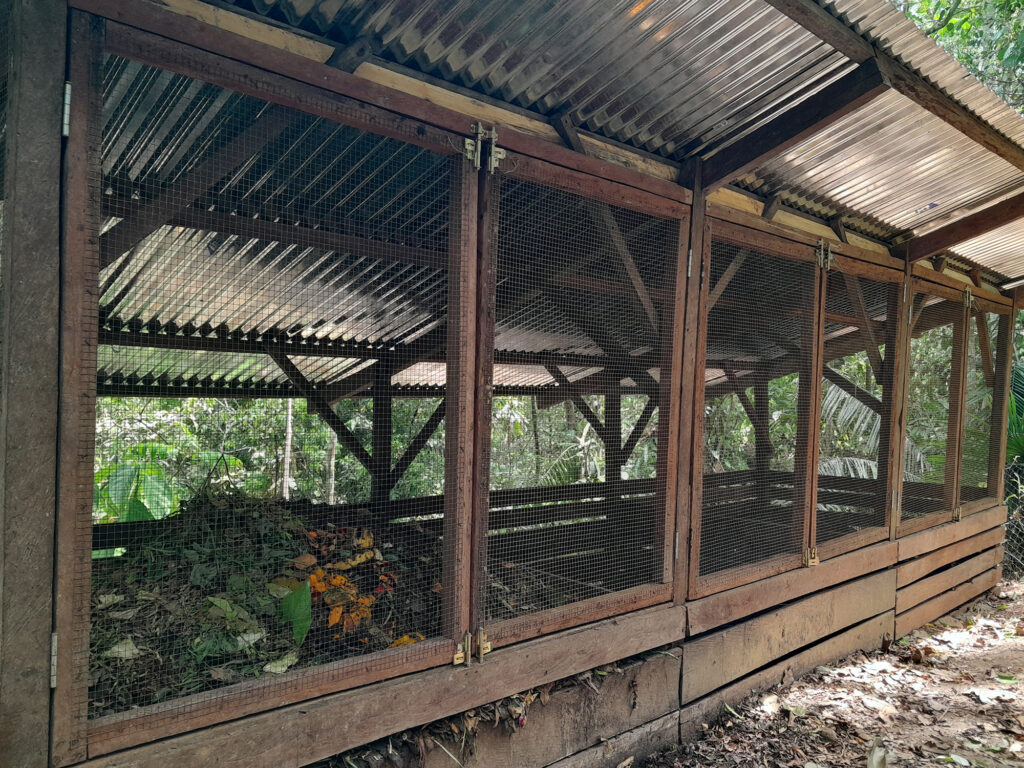
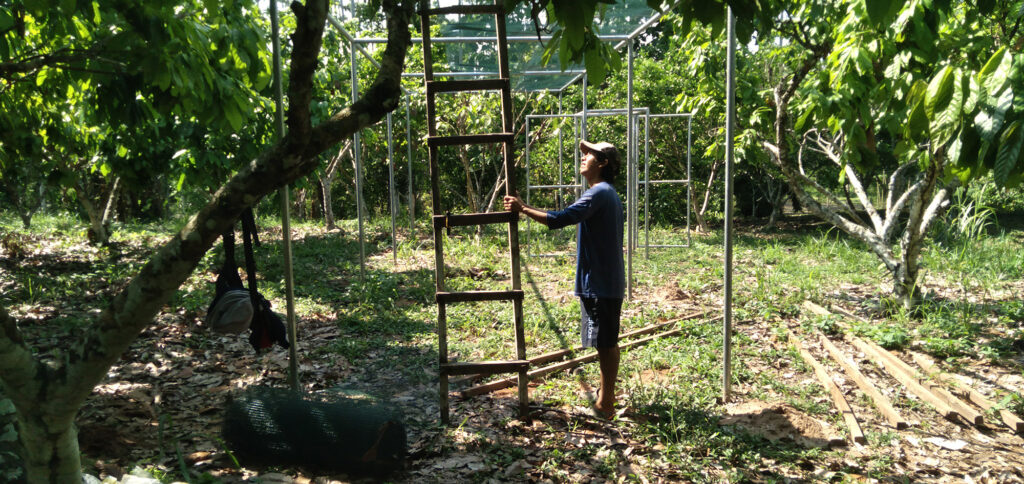
Despite the daily activities of gathering bananas, fruit, and leaves from the plantations, Geyler and his crew managed to renew the compost area and continue work on the bodega extension.
While there’s always plenty to do at EV, the plantation of Don Jorge remains a top priority, with Rolli, Machico, and his wife Ida Luz dedicated to nurturing the growth of new food for the animals. Soon, they will have some new company: with many parrots awaiting space, and thanks to a generous donation, we have decided to build a release enclosure for birds at Don Jorge’s plantation. Here, the parrots will live in semi-captivity, much like the monkeys at EV, enjoying the freedom of the plantation without interference from them. A heartfelt thank you to all the children and teachers at the primary school “De Kring” in Oegstgeest, The Netherlands. Your support couldn’t have come at a better time!
 Volunteers & other
Volunteers & other
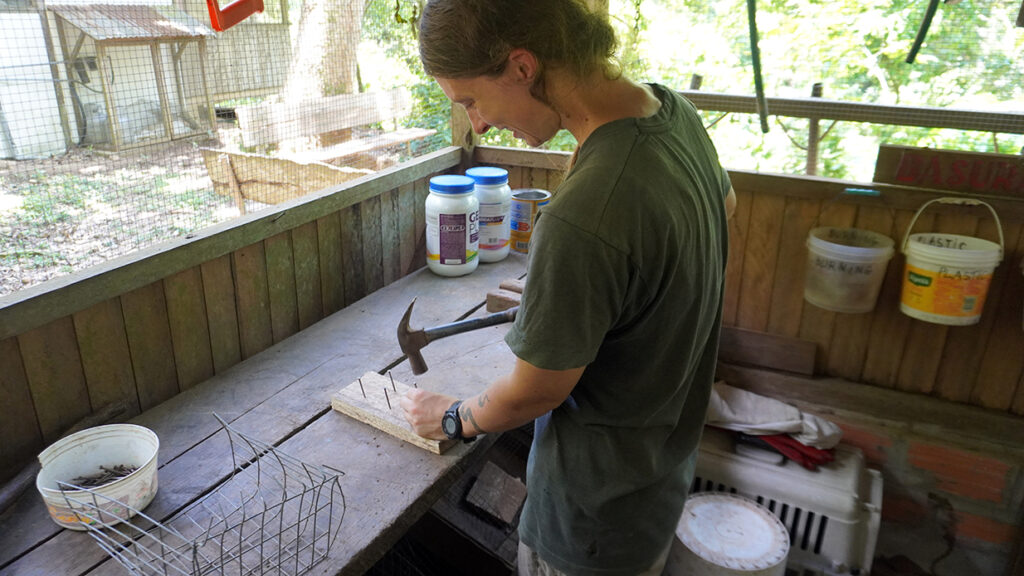

This month was so busy that we missed our regular visit to the Regalia waterfall and our forest walks. Luckily, the charming little waterfall here at EV is always nearby! Volunteer Rachel has taken the lead on human enrichment, organizing fun treasure hunts and engaging role-playing games that everyone enjoys.
With Caucho gone, we’ve reorganized our feeding tours for a better balance, shortening them so volunteers can focus more on enrichment activities—something the animals absolutely love! Plus, our team now starts at 8 a.m. instead of 7:30 a.m.—what a delightful luxury!
